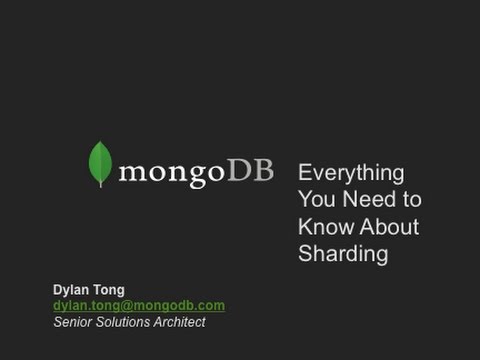This video covers the various approaches to sharding with the MongoDB open source NoSQL database.
It covers:
* What is sharding?
* When to shard?
* How to choose a shard key?
* Range Based Sharding
* Hash Based Sharding
* Tag Aware Sharding
[youtube W3HhqMvwZP8]
Slides from this presentation: https://www.mongodb.com/presentations/webinar-everything-you-need-know-about-sharding

